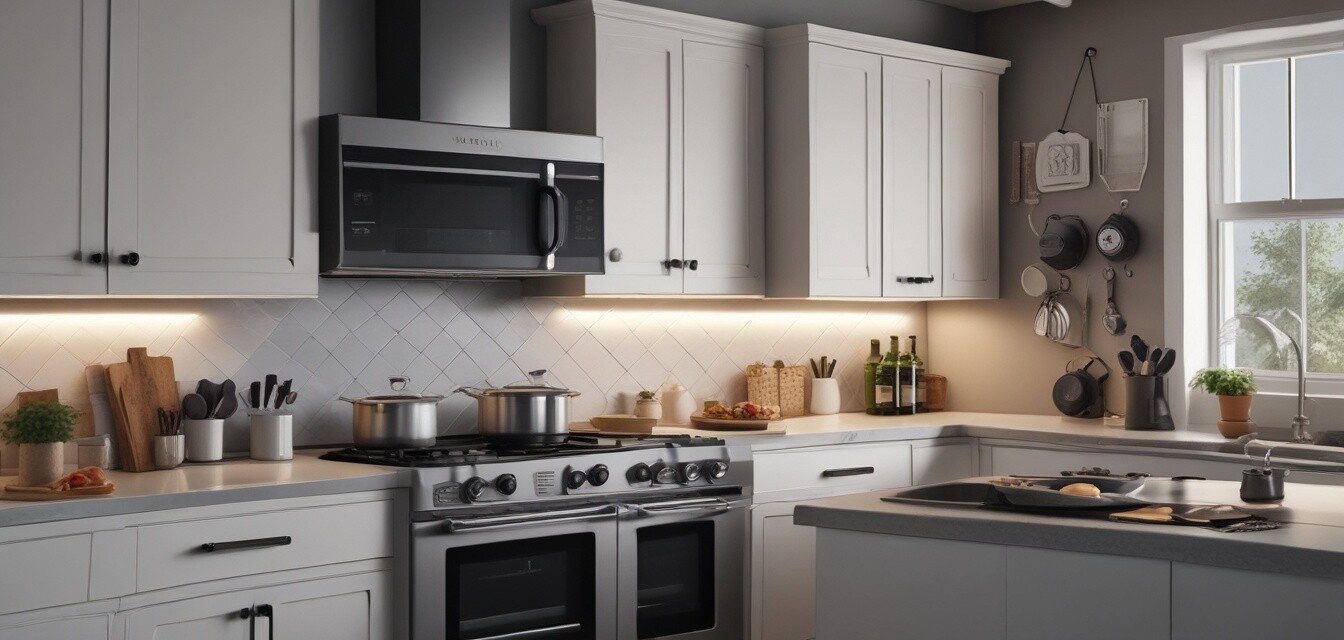
The Integration of IoT in Kitchen Appliances
Key Takeaways
- The Internet of Things (IoT) is revolutionizing kitchen appliances.
- Smart connectivity enhances cooking efficiency and convenience.
- Examples of IoT applications include smart ovens, refrigerators, and faucets.
- Integration with smart home systems allows for seamless operation.
- Staying updated with trends helps in making informed appliance choices.
The Internet of Things (IoT) is dramatically changing the landscape of kitchen appliances, enabling every device to communicate with one another. This technological revolution is not just about connectivity; it plays a significant role in enhancing cooking efficiency and home convenience. In this article, we will explore how IoT is transforming kitchen appliances and what this means for everyday cooks.
Understanding IoT in the Kitchen
At its core, the Internet of Things refers to the interconnection of everyday devices through the internet, allowing them to send and receive data. In the context of kitchen appliances, this connectivity offers a range of benefits:
- Remote monitoring and control of appliances.
- Improved energy efficiency.
- Enhanced food safety through real-time alerts.
- Integration with smart home systems for streamlined operations.
Benefits of IoT in Kitchen Appliances
The integration of IoT in kitchen appliances comes with multiple advantages. Here are some noteworthy benefits:
| Benefit | Description |
|---|---|
| Convenience | Control your appliances remotely via smartphone apps. |
| Efficiency | Optimize cooking times and energy consumption. |
| Food Safety | Receive alerts for temperature fluctuations in refrigerating appliances. |
| Customization | Tailor appliance settings according to personal preferences. |
Examples of IoT-Enabled Appliances
Here are some examples of IoT-enabled appliances that are becoming increasingly popular:
- Smart ovens that can be preheated remotely through an app.
- Bluetooth-enabled refrigerators that track and manage inventory.
- Touchless faucets with sensors for easy use.
- Induction cooktops with smart sensors for precision cooking.
Integrating IoT with Smart Home Systems
Smart kitchens often integrate with broader smart home systems, allowing appliances to function in harmony. This integration can lead to:
- Automated cooking schedules.
- Energy management through smarter usage patterns.
- Seamless communication between devices for cooking assistance.
Trends Shaping IoT in Kitchen Technology
As technology continues to evolve, new trends are emerging within the realm of IoT kitchen appliances. Some of the notable trends include:
| Trend | Description |
|---|---|
| Voice Activation | Appliance control through voice commands for hands-free operation. |
| Energy Efficiency | Appliances that monitor usage and suggest savings plans. |
| AI Integration | Appliances that learn user habits and adjust settings accordingly. |
| Sustainability | Focus on eco-friendly materials and energy-saving technologies. |
Staying Ahead of the Trends
Being aware of the latest trends in high-tech kitchen appliances is essential for making informed choices when upgrading your kitchen. For more insights, consider visiting our News and Trends section.
Pros
- Enhanced convenience with remote access.
- Improved cooking quality and consistency.
- Ability to monitor energy usage efficiently.
Cons
- Potential privacy concerns with data sharing.
- Increased dependency on technology.
- Initial cost can be higher than traditional appliances.
Conclusion
The integration of IoT in kitchen appliances is not just a trend; it is a revolution in how we cook and live. With smart technology improving efficiency and connectivity, the modern kitchen is becoming more functional than ever before. By staying informed about new developments, you can enhance your cooking experience and make the most of your kitchen technology.
If you're interested in learning more about high-tech kitchen appliances, check out our categories on Bluetooth-enabled devices and energy-efficient appliances for the latest innovations.